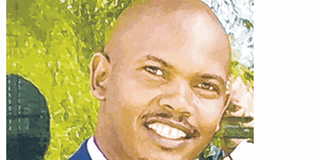Dons call for value of local knowledge

File Photo
What you need to know:
An expert with the United Nations Educational, Scientific and Cultural Organization, Mr Douglas Nakashima, said although indigenous knowledge is recognised in the global UN forums, it has failed to win full support of leaders in many developing countries
Arusha. Technological and knowledge systems embedded in cultural traditions can play a huge role in climate change mitigation efforts, according to experts.
They said this during a meeting convened at the Tumaini University Makumira that indigenous people have expertise in predicting climatic disasters and such knowledge should not be disregarded.
“Scientific knowledge is not only found in books but also within the cultural traditions which our people have used for years,”said Dr Elifuraha Laltaika, a senior lecturer at the university located outside Arusha city.
He challenged the government to recognise the role of indigenous knowledge which, he said, can play an effective role in addressing calamities such as droughts and floods.
Dr Laltaika, who was early this year appointed a member of the United Nations Permanent Forum on Indigenous People, emphasised it was high time indigenous information was well documented.
The Vice Chancellor, Prof Joseph Parsalaw cited the indiscriminate felling of trees which, he said, exposed the bare land to the scorching heat, thus worsening the drought conditions and causing floods or massive land degradation during heavy rains.
“For the local communities, it is time they revived their traditional norms in conserving nature,” he explained, noting that possible the by-laws should be put in place to curb offenders.
An expert with the United Nations Educational, Scientific and Cultural Organization (Unesco), Mr Douglas Nakashima, said although indigenous knowledge is recognised in the global UN forums, it has failed to win full support of leaders in many developing countries.
“Some policy makers consider this ‘knowledge’ to be of a little use and only the preserve of environmental and cultural activists,” he told the meeting which brought together experts from universities, the Tanzania Meteorological Agency, Unesco and traditional livestock keepers, among others.




